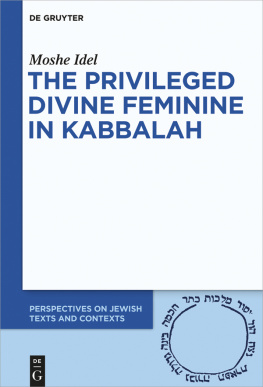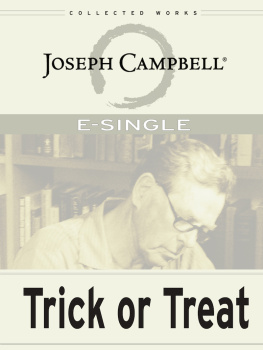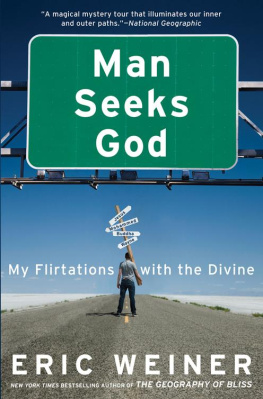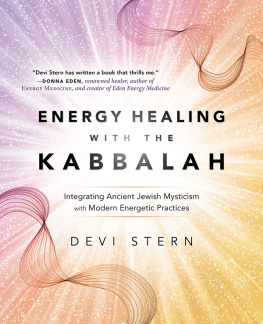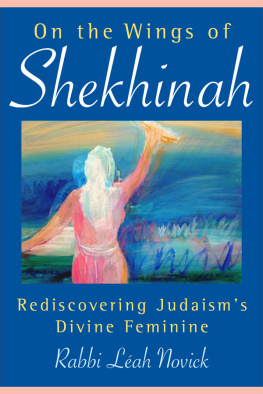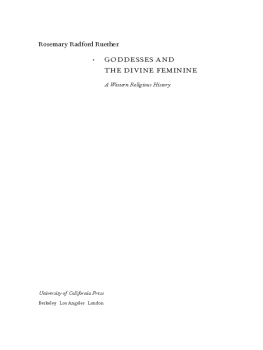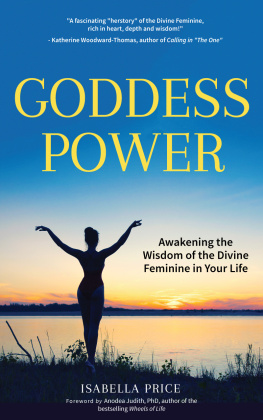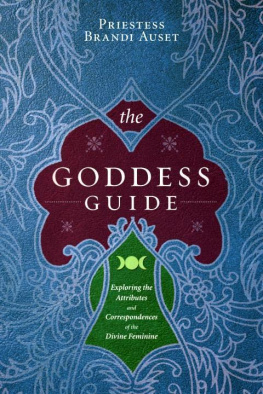Moshe Idel - The Privileged Divine Feminine in Kabbalah
Here you can read online Moshe Idel - The Privileged Divine Feminine in Kabbalah full text of the book (entire story) in english for free. Download pdf and epub, get meaning, cover and reviews about this ebook. year: 2019, publisher: De Gruyter, genre: Romance novel. Description of the work, (preface) as well as reviews are available. Best literature library LitArk.com created for fans of good reading and offers a wide selection of genres:
Romance novel
Science fiction
Adventure
Detective
Science
History
Home and family
Prose
Art
Politics
Computer
Non-fiction
Religion
Business
Children
Humor
Choose a favorite category and find really read worthwhile books. Enjoy immersion in the world of imagination, feel the emotions of the characters or learn something new for yourself, make an fascinating discovery.
- Book:The Privileged Divine Feminine in Kabbalah
- Author:
- Publisher:De Gruyter
- Genre:
- Year:2019
- Rating:5 / 5
- Favourites:Add to favourites
- Your mark:
- 100
- 1
- 2
- 3
- 4
- 5
The Privileged Divine Feminine in Kabbalah: summary, description and annotation
We offer to read an annotation, description, summary or preface (depends on what the author of the book "The Privileged Divine Feminine in Kabbalah" wrote himself). If you haven't found the necessary information about the book — write in the comments, we will try to find it.
The Privileged Divine Feminine in Kabbalah — read online for free the complete book (whole text) full work
Below is the text of the book, divided by pages. System saving the place of the last page read, allows you to conveniently read the book "The Privileged Divine Feminine in Kabbalah" online for free, without having to search again every time where you left off. Put a bookmark, and you can go to the page where you finished reading at any time.
Font size:
Interval:
Bookmark:

Moshe Idel
The Privileged Divine Feminine in Kabbalah
Perspectives on Jewish Texts and Contexts

Edited by
Vivian Liska
Editorial Board
Robert Alter, Steven E. Aschheim, Richard I. Cohen, Mark H. Gelber,
Moshe Halbertal, Christine Hayes, Moshe Idel, Samuel Moyn,
Ada Rapoport-Albert, Alvin Rosenfeld, David Ruderman, Bernd Witte
Volume 10
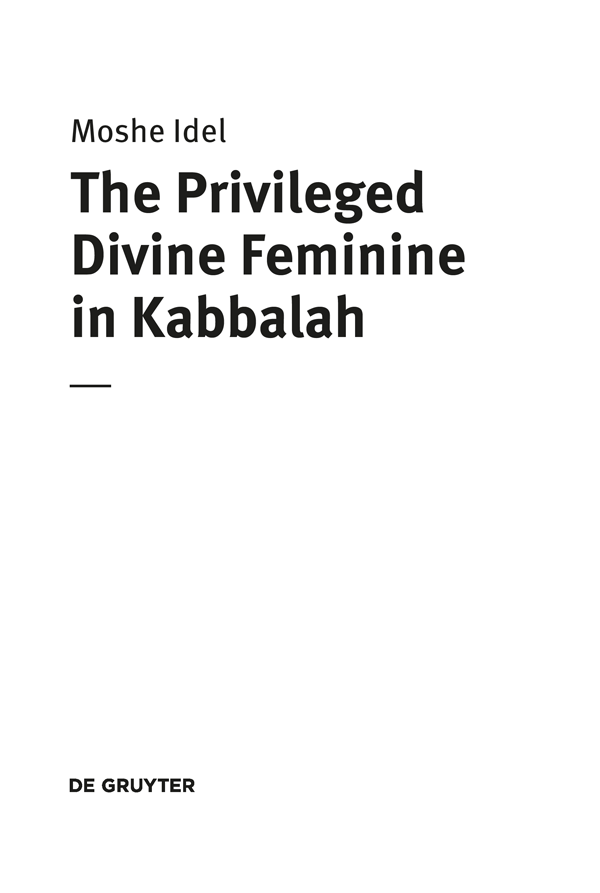
ISBN 978-3-11-059744-8
e-ISBN (PDF) 978-3-11-059980-0
e-ISBN (EPUB) 978-3-11-059760-8
ISSN 2199-6962
Library of Congress Control Number: 2018952920
Bibliographic information published by the Deutsche Nationalbibliothek
The Deutsche Nationalbibliothek lists this publication in the Deutsche Nationalbibliografie;
detailed bibliographic data are available on the Internet at http://dnb.dnb.de.
2019 Walter de Gruyter GmbH, Berlin/Boston
www.degruyter.com

[She] is higher than all.
Zohar, Tiqqunei Zohar , R. Moshe Cordovero, R. Hayyim Vital, R. Naftali
Bakharakh, R. Abraham Yehoshua Heschel of Apta, R. Shlomo Eliashiv
Since whatever is done, is always done only by [means of] Malkhut .
R. Shlomo Eliashiv, Leshem, Shevo ve-Ahlemah, Sefer Deah , 2, fol. 158a.
Put me under Your Wings
And by my mother and sister.


Chaim Nachman Bialik
The present study addresses a complex topic: the preeminent status of the divine feminine power, referred to also as Female, within the theosophical structures of many important Kabbalists, Sabbatean thinkers, and Hasidic masters. The complexity derives from the usual compact and allusive language of Kabbalists, whose discourse was not oriented toward analytical expositions; nor were they concerned with dealing with issues of sex and gender in the way they are conceived in modern, direct types of discourse. Their treatment of such important topics is, in many cases, oblique. The greater complexity is not only a matter of the opacity and intricacy of many Kabbalists texts; an additional factor stems from mediation based on modern scholarly concepts in which an exploration of issues related to sex and gender has become an intrinsic part of scholarship in the humanities. At present, this approach is more than simply a tool for empowering women, part of the struggle against misogyny, or the striving for social changes in the present indubitably very laudable developments. The problem arises upon attempts to apply this methodology for an understanding the past, including texts that do not subscribe to the ideals forged in some circles during the last century, and to judge them by these standards. Analyzing the past with the use of modern techniques has become a way of unmasking its darker sides; in many cases, this does not represent an effort toward a new understanding of a different culture but, unfortunately and preeminently, a critique of ancient or medieval cultures, which, naturally, do not comply with the requirements of political correctness with regard to attitudes toward sex and gender. Frequently, critiques precede a sustained effort at understanding, and scholars neglect of most of the texts analyzed below, constitutes just one example of this approach.
Despite the two main theses of this study as to the relatively privileged status of the divine Feminine and the importance of what I call the three phases gender theory, this is by no means an attempt to defend Kabbalah or Kabbalists, or even less Judaism, from criticism of their androcentric attitudes, which, indeed, exist there substantially. Nor do I intend to emulate the Kabbalists more positive approaches to the divine Feminine, mainly ignored in scholarship in the field. My aim is to highlight the existence of other attitudes that have been ignored or neglected in scholarship. I therefore do not recommend viewing my conclusions as any recommendation for a new understanding of Judaism as a whole or as a source of inspiration for a spiritual reform of Judaism or its theology. Nor are the texts addressed below helpful in formulating a feminine character as Kabbalists envisioned it. My primary aim here, as in my other studies, is to gain a better understanding of some aspects of a vast literature by pointing to the richness and diversity found in Kabbalistic literature. Such a project requires a non-ideological attitude that differentiates among diverse voices, not only within the broad spectrum of Kabbalistic literature as a whole but also in the writings of individual authors. In fact, I postulate that one can discern diverse types of theosophical thought in Kabbalah that shaped the understanding of the divine feminine powers. Occasionally, a careful inspection of the diapason of voices reveals isolated theosophical theories, and I shall deal with various discussions that constitute what I call circular theosophy in Kabbalah. In this work, I advance beyond my earlier studies in which I dealt with the many cases of equality between the divine Male and Female, of reciprocity in their relationship, and of what I call two distinct categories: feminine theurgy and Females theurgy, Scholarship has overlooked so many quintessential discussions concerning gender in Kabbalah; moreover, my analysis of these debates, presented here for the first time, offers a totally innovative picture.
I wish to emphasize that I am not attempting here or elsewhere merely to rescue a few marginal voices from oblivion or to contribute to an archeology of the suppressed, although those are worthy undertakings. Rather, I want to highlight a major topic that has been ignored or suppressed, sometimes by scholarly misinterpretation of Kabbalistic thought, despite and perhaps even because of the recent wave of interest in feminism as an ideology. From this point of view, this is an unfashionable study. The extent of this trends impact on other modern developments outside Judaism is a separate matter. Nevertheless, I believe that it is possible to lay the groundwork for a tentative understanding of the transition of a particularistic, ethnocentric, approach such as that which most of Kabbalah embraced, though in a modest manner, to the thought of some Renaissance and subsequent modern thinkers, which, in turn, probably influenced modern feminism.
Many thanks are due to the Matanel Foundation for establishing and supporting the Matanel Chair for Kabbalah at the Safed Academic College, and to the Kogut Institute for Advanced Studies at the Hartman Institute in Jerusalem. They enabled me to spend time on the research and writing of the present study, which is part of a broader project.
Last but not least: thanks to the editor of the series, Prof. Vivian Liska of the series, who kindly accepted this book for publication and to Dr. Stefani Hoffman for her excellent editing.
Jerusalem, January 2018
Font size:
Interval:
Bookmark:
Similar books «The Privileged Divine Feminine in Kabbalah»
Look at similar books to The Privileged Divine Feminine in Kabbalah. We have selected literature similar in name and meaning in the hope of providing readers with more options to find new, interesting, not yet read works.
Discussion, reviews of the book The Privileged Divine Feminine in Kabbalah and just readers' own opinions. Leave your comments, write what you think about the work, its meaning or the main characters. Specify what exactly you liked and what you didn't like, and why you think so.

